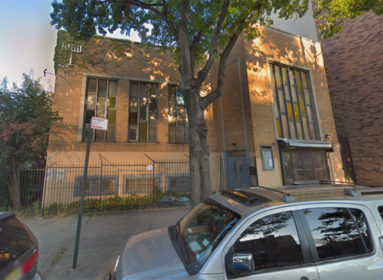
By Andrew Tobin/(JTA) – Actress Mayim Bialik has drawn criticism for an op-ed she wrote for The New York Times in response to the allegations of sexual assault and harassment against Hollywood mogul Harvey Weinstein.
In her essay Saturday, Bialik wrote that she was “shocked and disgusted” by the accusations, which have been made by more than 30 women and partially denied by Weinstein’s representative. However, she said, she was not surprised.
Bialik, 41, described the insecurities she felt growing up in show business as a “prominent-nosed, awkward, geeky, Jewish 11-year-old.” She criticized Hollywood as “an industry that profits on the exploitation of women – and not just on screen.” “I quickly learned even as a preteen actress that young girls with doe eyes and pouty lips who spoke in a high register were favored for roles by the powerful men who made those decisions,” she wrote.
Bialik, a star of the hit CBS sitcom “The Big Bang Theory” in which she portrays nerdy neurobiologist Amy Farrah Fowler, said that under the influence of her immigrant Jewish parents, she has long made decisions that she considers “self-protecting and wise.” Long a public proponent of modesty, she outlined her rules for behavior and dress. “I have decided that my sexual self is best reserved for private situations with those I am most intimate with,” she wrote. “I dress modestly. I don’t act flirtatiously with men as a policy.”
Bialik, who is Orthodox Jewish and the divorced mother of two young sons, said that while “absolutely nothing” excuses men’s sexual assault or abuse of women, “we can’t be naive about the culture we live in.” She noted that she took a long break from Hollywood to get a doctorate in neuroscience and admonished young women that “having others celebrate your physical beauty is not the way to lead a meaningful life.”
Critics quickly accused Bialik of suggesting that dressing and acting modestly is protection against the kind of behavior Weinstein is accused of. Mashable Internet reporter Chloe Bryan said that Bialik was insinuating that she had evaded harm because of her choices, and that this was “irresponsible and dangerous.”
“Contrary to Bialik’s implications, it’s not just ‘doe-eyed’ women with personal trainers who experience harassment,” she wrote Sunday. “It’s all of us.”
Social media users echoed the sentiment.
Also Sunday, Bialik posted a Facebook message saying some people had taken her words “out of context” and “twisted them to imply that God forbid I would blame a woman for her assault based on her clothing and behavior.” She called that conclusion “absurd” and said “it’s sad how vicious people are being when I basically live to make things better for women.”
One of Bialik’s few defenders commented, “Mayim that was a very brilliant and powerful piece! Those who are taking it out of context either didn’t read or are not being intellectual enough to allow an objective analysis. My question to them is, do they lock their doors? No thief has a justification to deprive others of their property simply because they left their door unlocked, but that doesn’t make it reasonable to leave one’s door unlocked.”
Bialik said in her Facebook post that she would be appear in a live Facebook video for The New York Times Monday morning – “lets discuss it then.”







 Southern New England Jewish Ledger
Southern New England Jewish Ledger














